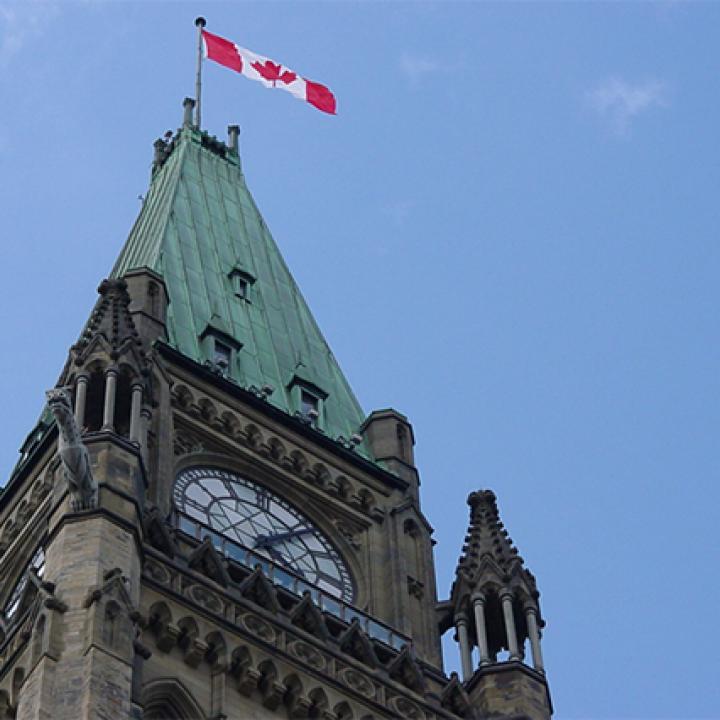
- Policy Analysis
- Congressional Testimony
Canada's Response to the Violence, Religious Persecution, and Dislocation Caused by ISIL

A detailed discussion of how to combat both ISIS and the Assad regime, including through diplomacy and other political means as complements to the existing military campaign.
The following is an excerpt from Mr. Tabler's prepared remarks; visit the Canadian Parliament's website for a full transcript.
It's a pleasure to be here with you today, Mr. Chairman and ranking members. It's always easier to go last, but hopefully I can add more to the discussion, for what's likely to be a long discussion today, in a series of discussions going forward into the coming months and years concerning the threat posed by ISIL, also known as ISIS. It is perhaps the most complex threat facing Canada and its allies in the foreign arena certainly, and will be for years to come.
Following from the previous comments, I think bombing your way, or bombing one country's way, out of this problem will not be sufficient. This is where I think until recently [coalition strategy has been going], which has entailed the high-profile bombing campaigns in Iraq and Syria, combined with the arming of some groups inside of Iraq, most notably Kurds. This is part of the containment aspect of ISIL.
Some of that has been outlined in terms of protection of minorities, which is a major concern not only for those of you in Canada but also in the United States and the world over, and justifiably so. ISIL's tactics are extremely severe. They not only pose an existential threat to these minorities, but they also challenge the world on whether it will stand by in the face of such atrocities.
The problem going forward will be in this political solution that has been mentioned previously -- how it will actually take place, and what shape it will take. All of these, ISIL and other jihadist groups inside Iraq and Syria, are a product of wars inside Iraq, and most recently in Syria, as those states broke down, mostly because the central authorities did not include the majorities in each country. That's the reason why, until now, the basis of the strategy in Iraq, at least for the United States but I think also for Canada, has been to try to empower the new Iraqi government under Prime Minister [Haider] al-Abadi to be more inclusive to Sunnis, Kurds, and others in the country and not simply benefit a Shia-dominated government backed by the Islamic Republic of Iran.
In Syria, we do not have those kinds of options. The government in Syria, the regime led by President Bashar al-Assad, is a completely minority-based, inflexible system at its core. It doesn't mean that it doesn't have majority Sunnis who are attached to it, but it has proven to be, at its core, one of the least effective countries in the region at any kind of reform -- political, economic, or otherwise. It's a considerable challenge to expect that the regime will reform under such circumstances in the foreseeable future.
That makes this settlement in Syria that much harder to attain. I think you've seen recently the efforts by the UN representative Staffan de Mistura to try to bring about a ceasefire, or rather a freeze, around the city of Aleppo, where the government is poised to yet again encircle and besiege a city, this time arguably Syria's largest city in one way, shape, or form. The freeze is an idea at the moment. There really are not substantial plans attached to it as of yet, although there are lots of other ideas. Like all of these efforts, they'll take a long time to roll out. In the meantime, unfortunately, a lot of minority populations in areas that are controlled by ISIL will suffer.
The complexity of the solution in Syria is particularly difficult for the international community to grasp. It's there where we actually need to bring about two things that seem inconsistent. One is the defeat of ISIL. The other is the transformation, in one way, shape, or form, of the Bashar al-Assad regime into something that takes into account the country's majority Sunni population. Sunnis in Syria represent roughly 75 percent of the population -- it depends on how you cut it and which census you use -- that is the base of ISIL.
The only way to politically undermine ISIL is to bring people who support or are forced to support that organization, Sunnis, away from such organizations and jihadists into some other kind of political arrangements in those areas, or concerning the Syrian central state. That requires a political settlement inside the country, and unfortunately, that remains very far off.
I would encourage all of you to follow the news, read scholars like those who are testifying here today, and work together to try to come up with a real political solution that does not simply have a military foundation. We need to find something that goes beyond the current efforts by Western countries that can try to bring peace to these very troubled lands.
Thank you very much.
Canadian Standing Committee on Foreign Affairs and International Development



